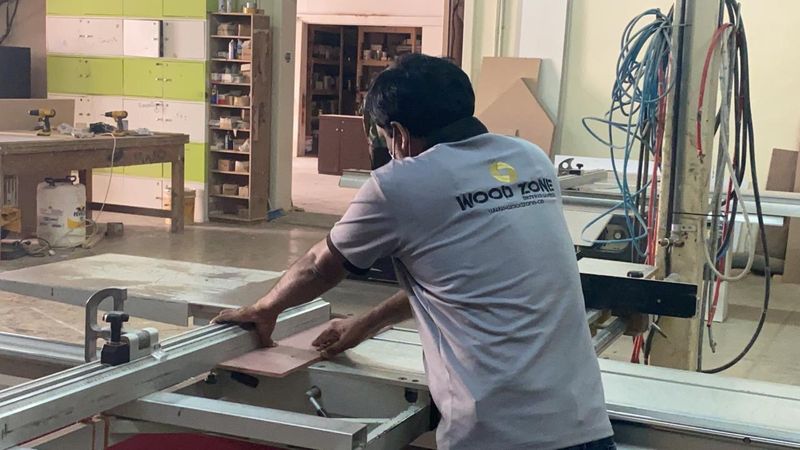UAE: Three methods how women-led companies financially survived COVID-19

Three Ways Female-Led Firms Financially Survived COVID-19 (Picture for illustrative purposes.)
Photo credit: Wikimedia Commons
Dubai: By introducing alternative sources of income, evaluating finances to manage cash flow, injecting personal funds into their businesses, and negotiating payment terms with partners, UAE-based small and medium-sized enterprises (SMBs) have taken a variety of measures to help manage the Pandemic to stay afloat.
Financial challenges forced most companies to make certain drastic changes to their strategy and the way they work, said Dr. Christiane Schloderer, CEO of Dubai-based management consultancy Growth Partners. “After working with a mix of companies, we found that some were struggling. Most were fine, while some did well with the move to digital. We only had one early stage company that may be closing. “
A central challenge for SMEs was the control of the cash flow. The uncertainties created by the pandemic made the situation more complex, as organizations were often unable to plan ahead and required shorter and more frequent planning cycles. Sudden disruptions and an uncertain financial situation forced many SMEs to cut overheads (running costs of running a business) and even to outsource certain parts of the business. Despite the challenges, part of the SMEs flourished by turning quickly.
Alternative sources of income paved a growth path
UAE-based home-grown brand that specializes in natural skin care products The camel soap factory lost 90 percent of its sales overnight. “We saw the ominous signs when tourists from Asia began to thin out from the beginning of February, even before the pandemic hit our region,” said founder and CEO Stevi Lowmass. “We had to plan immediately to manage cash flow and protect the business, which was heavily reliant on the tourist population prior to the pandemic, as our UAE handcrafted camel milk soaps are perfect for free gifts.”

The camel soap factory created three additional sources of income during the pandemic by leveraging its existing facility, excess inventory, and online operations
Photo credit: Delivered
As an immediate measure, Lowmass has injected personal funds into the business, coupled with a cash reserve built up over the years. They were also supported by private shareholders. “We have received support from our landlord Dubai Silicon Oasis through restructured rental payment options. For example, checks due in April 2020 could be paid by the end of the year. This has done a huge amount to manage our cash flow situation and give us some breathing space. “
Importantly, Lowmass felt the urgency to turn quickly to create new sources of income for the company’s survival. Using its manufacturing unit, The Camel Soap Factory began contract manufacturing of personal care products for private label brands and grew 400 percent from a tiny base. In September 2020, the brand launched a direct-to-consumer business model with a new e-commerce platform called Natural Skin Rescue. The e-commerce platform itself made up 30 to 40 percent of its total business in 2020, which is expected to reach 50 percent in the short term.
Additionally, the brand has moved into the FMCG space with the development of a new line of soaps aimed at the local market and now available in Carrefour. Finally, the camel soap factory has also started exporting. A number of its products will soon be available on the Chinese online platform Tmall, which is shared by Lowmass.
Business Continuity Tip # 1: Consider creating new revenue streams to ensure the longevity of a business. When the pandemic shook the camel soap factory out of its comfort zone, the brand created three additional sources of income by leveraging their existing facility, excess inventory, and moving to digital space.
Managing cash flow was a priority
UAE-based marketing consultancy Yardstick Marketing Management lost nearly 80 percent of its business when the pandemic hit the region. Business did well before the pandemic, but the situation deteriorated rapidly in 2020 as Yardstick has large customers from affected sectors such as travel and retail.
“We have survived over the years thanks to our careful cash flow management. Fortunately, we didn’t have to fire anyone, although we had to accept a pay cut to keep the business going, ”said Anishkaa Gehani, founder and CEO of Yardstick Marketing, which has eight employees.
With a big loss of business looming, Gehani carefully examined the financial situation. From negotiating about reducing office rent to curbing ancillary costs such as telecommunications bills, she succeeded in reducing both expenditure heads by 40 percent and 50 percent respectively. This helped save cash to protect the business.
Then the company renegotiated the terms of payment for accounts receivable from customers, especially customers who were deeply affected by the pandemic. For example, Yardstick has customers with 12 month and 6 month payment plans. Under normal circumstances, this would help the company assess cash flow and plan accordingly. But the pandemic disrupted such forward-looking financial planning.
“To manage cash flow, we agreed on tiered payment plans with customers to ensure that both parties can stay afloat financially. For example, one of our severely affected customers could not make any payments in 2020, but within the first three months of 2021 we received the full outstanding amount from the previous year, ”said Gehani. “Similarly, as our suppliers provide printing, courier and IT services, among other things, we have had to create tiered payables payment plans that span 3 to 6 months.”
Business Continuity Tip # 2: Small but Consistent Savings Are Critical. Gehani has been saving a fixed amount every month for 17 years. At some point she saved almost 50 percent of her monthly income, now to around 10 percent. By carefully saving, she was able to reinvest in her business that helped during the pandemic while investing in assets and raising funds for her children’s education.
The reduction in overhead costs was inevitable
In early 2020, business was positive for Dubai-based Wood Zone Technical Works LLC, which specializes in creating exhibition stands, event sets and interiors. The company had many projects in the pipeline, and the expo was just around the corner at the time. When the pandemic hit the region, a crisis of unprecedented proportions ensued and Wood Zone lost nearly 40 percent of its revenue. With the exhibition and events side of the business completely dried up, the company needed to cut its overheads.

Wood Zone Technical Works lost 40 percent of sales due to pandemic-related challenges
Photo credit: Delivered
“Unfortunately we had to let some of our employees go, which is a difficult decision for any company,” said managing partner Vandana H. “In addition to salaries, other annual employee-related costs include visas, health insurance, accommodation and transportation. Eight new employees came to us in January 2020, as several projects were supposed to start in the first quarter. However, by March the situation changed completely as most projects were canceled or postponed. We had to make some quick decisions to reduce recurring costs. While we needed a few people to get projects going when they came about, as an SME we couldn’t afford to keep too many people on standby. We had an open conversation with our employees to give them the opportunity to take their annual vacation. We were surprised to see that more than 25 percent of our 50-person team prior to the pandemic were interested in returning to their home countries to be with families before the lockdown. This has helped us cut overhead costs significantly. “
As an additional measure to keep the business alive, Vandana had to bring in personal funds. She also admitted that she received support from certain government agencies. Wasl Properties, Wood Zone’s commercial landlord, offered a three month rent reduction in 2020, and the same goes for 2021 on renewal. The Dubai Electricity and Water Authority (Dewa) bills were cut by roughly 10 percent in 2020. Fees for license renewals were also reduced by around 20 percent.
Business with Wood Zone slowly but steadily picked up speed from November 2020. From February to March 2021, projects in the pipeline have been confirmed and, in some cases, work is in progress.
Business Continuity Tip # 3: Having a diversified company, even if it’s small, is important. While Wood Zone specializes in creating equipment for exhibitions and events, the company survived the pandemic due to its vertical interior design, which was the sole source of income in 2020 and accounted for 85 percent of the business.
How can SMEs manage cash flow effectively?
The pandemic has highlighted the need for SMBs to understand the way and regularly monitor how money is flowing in and out of the business.
The first step in effective cash flow management is a detailed level of transparency about future cash flows, recommended Schloderer. And that requires:
• • A good financial systemHere, data is structured in such a way that cash planning describes due dates, logical account structures, regular updates, etc.
• • A detailed budget that is updated regularly, at least once a month. If money is tight, the budget should be updated weekly or even daily.
• • A responsible person who owns the cash flow and knows what’s coming. This is usually not the accountant or bookkeeper, but someone who is close to the company and understands situations, e.g. B. when customers pay late or when a supplier is in trouble and needs an urgent payment to avoid delivery bottlenecks.
